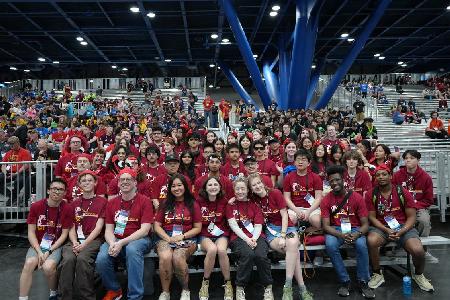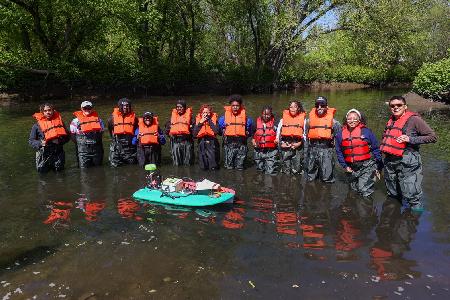
At Friends Select School, two ambitious high school computer science students have cut their teeth with a real-world application that has led to a fledgling business and a promising future in app development.
The two students, Arman Dezfuli-Arjomandi and Haydn Dufrene, have created the second version of a useful, sharp-looking iPhone application for fellow students to track theirs’ and teacher’s schedules at the private Quaker school in Center City.
The school is based on a six-day schedule that rotates each day, so it’s an easy way for a student to find out where he or she is supposed to be. When a student is ready to add an assignment to their homework list, the app automatically detects which class they are in and categorizes it. Students can even tap into iSepta within the app to find out Regional Rail schedules.
The first iteration of the app, which the two students launched last year while taking Friends Select Director of Technology Jim Brubaker’s object-oriented programming class, had basic scheduling integration, and really started as a chance for the two students to get their feet wet with the iPhone’s native programming language.
 “We had to come up with something to build to get class credit, so we thought, ‘wouldn’t it be the coolest thing if we could build an app for the school,'” says senior Arman Dezfuli-Arjomandi, who worked with Friends Select graduate Dufrene on the application.
“We had to come up with something to build to get class credit, so we thought, ‘wouldn’t it be the coolest thing if we could build an app for the school,'” says senior Arman Dezfuli-Arjomandi, who worked with Friends Select graduate Dufrene on the application.
The students built the application on top of the administration’s scheduling and resource management software, provided by Blackbaud, a nonprofit software provider. By exporting the data in CSV format, which contained schedules and student and teacher listings, the students were able to import that data into Cocoa to design the iPhone app.
“It was pretty exciting to have developers from our student body provide a useful app for students. They’ll be able to immediately see where a teacher is and find out when a teacher is available,” Brubaker says.
The original version took a year to build, about 400 hours total, spent mostly in class, but Dezfuli-Arjomandi says the two students “we were developing in between classes, after school, weekends, basically whenever we could.” Dezfuli-Arjomandi handled the graphic interface while Dufrene was the “algorithmic genius,” Dezfuli-Arjomandi says.
When it came time to build a second version, the duo scrapped everything. They rewrote the code and the work has a quality polish that led to an interesting development. This year, the school bought the application and has contracted Dezfuli-Arjomandi and Dufrene, and their company The Falco Initiative, to provide application support for the next five years.
At an official in-school launch in mid-May, Dezfuli-Arjomandi presented the new app in front of the entire student body, and offered the students the chance to download the free app on the spot. Students aren’t allowed to use phones in class, but, Brubaker says, teachers are increasingly allowing use of mobile devices for academic research or to use the Friends Select app.
As a business, Falco has already released a popular game to the App Store called Slide to Unlock, which has been downloaded more than 150,000 times. The simple game allows users to use the iPhone’s iconic sliding-unlock mechanism in a race against the clock to see how many times they can complete the task in a certain amount of time. Later this summer, Dezfuli-Arjomandi plans on working on an iPad game which will be similar to the Slide to Unlock model.
In the fall, Dezfuli-Arjomandi, who says he’s been coding since he was 9 years old with languages like HTML, CSS and C++, will be headed to Santa Clara University in Silicon Valley, where he’ll be close to internship programs there, and perhaps more importantly, where he’ll be close to his partner Dufrene, who’s already a freshman at Stanford University.
Before being introduced to Java, Dezfuli-Arjomand says he was lost for direction. Perhaps credit that direction to Brubaker, who doesn’t exclusively teach Cocoa, but encouraged the students. “Through the regular curriculum, [Brubaker] gave me and Haydn the foundation to work on iPhone development. Any student who wants to do it will want to pursue it on their own.”
Join the conversation!
Find news, events, jobs and people who share your interests on Technical.ly's open community Slack

Philly daily roundup: Minecraft in a Philly school; PTW kicks off; Tech and art happy hour

Philly daily roundup: Philly's top innovation leaders; City buildings go solar; PTW kicks off on Friday

Philly daily roundup: UPenn's AI master's degree; Advice for EDA Tech Hubs; Last day of ACP
